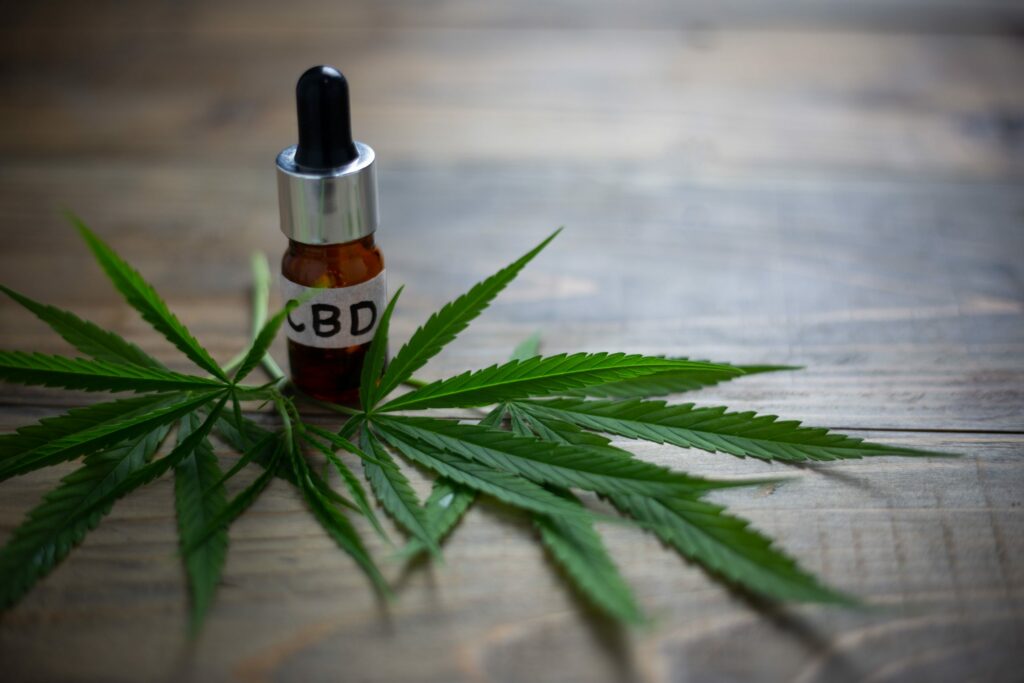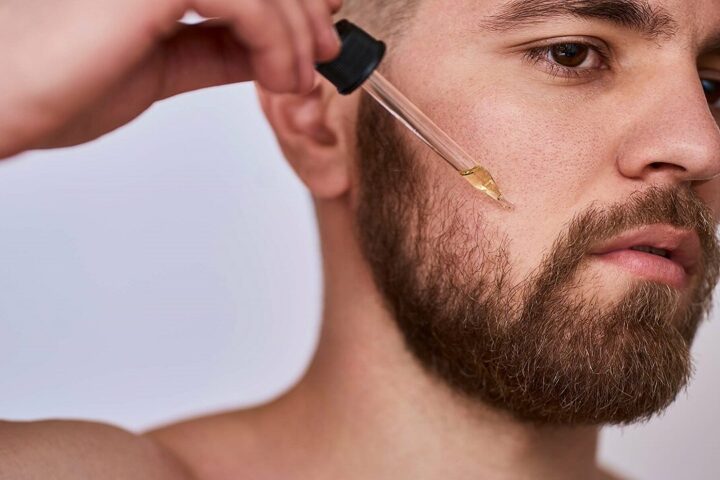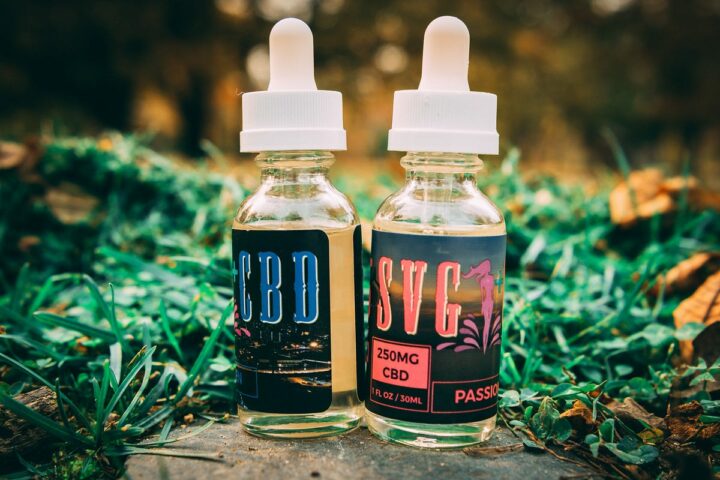CBD Foot Cream
What is CBD Foot Cream
CBD foot cream is a topical product that is designed to soothe and nourish the feet while providing the potential benefits of CBD, or cannabidiol, a non-psychoactive compound found in the cannabis plant. CBD foot cream typically contains a blend of natural ingredients, such as essential oils, botanical extracts, and shea butter, along with CBD extract.
CBD foot cream is applied directly to the feet, where it can absorb into the skin and provide potential benefits. Here are some potential benefits of using CBD foot cream:
Moisturizes and softens the skin
CBD foot cream is typically formulated with ingredients that help moisturize and soften the skin, such as shea butter, coconut oil, and essential oils. These ingredients can help restore the natural moisture balance of the skin, which can be especially beneficial for dry, cracked, or rough feet.
Reduces inflammation and pain
CBD has been shown to have potential anti-inflammatory and analgesic properties, which means it may help reduce inflammation and pain. When applied topically to the feet, CBD foot cream may help reduce inflammation and pain caused by conditions such as plantar fasciitis or arthritis.
Promotes relaxation and stress relief
CBD has also been shown to have potential calming and relaxing effects, which may help promote stress relief and relaxation. CBD foot cream may help create a soothing, calming sensation when applied to the feet, which can be especially beneficial before bed or after a long day on your feet.
Improves circulation
Certain ingredients found in CBD foot cream, such as peppermint oil and arnica extract, have been shown to help improve circulation. Improved circulation can help reduce swelling, pain, and discomfort in the feet, and may even help prevent conditions such as varicose veins.
Helps prevent foot odor
Many CBD foot creams also contain natural deodorizing ingredients, such as tea tree oil and eucalyptus oil, which can help prevent foot odor. These ingredients can help neutralize the bacteria that cause foot odor, leaving your feet feeling fresh and clean.
In conclusion,
CBD foot cream is a topical product that is designed to soothe and nourish the feet while providing the potential benefits of CBD. CBD foot cream may help moisturize and soften the skin, reduce inflammation and pain, promote relaxation and stress relief, improve circulation, and prevent foot odor. It’s important to choose a high-quality CBD foot cream that contains natural, nourishing ingredients and is third-party tested for purity and potency. It’s also important to consult with your healthcare provider before using CBD products, especially if you have any medical conditions or are taking medications.
How to use CBD Foot Cream
CBD foot cream is a topical product that is designed to soothe and nourish the feet while providing the potential benefits of CBD. Here are some steps on how to use CBD foot cream:
Clean and dry your feet
Before applying CBD foot cream, it’s important to clean and dry your feet thoroughly. This will help ensure that the cream can absorb into the skin effectively.
Apply a small amount of CBD foot cream
Squeeze a small amount of CBD foot cream onto your fingers and rub it into your feet, focusing on any areas of dryness, roughness, or discomfort. It’s important to use only a small amount of foot cream, as a little goes a long way.
Massage the cream into your feet
Gently massage the CBD foot cream into your feet, using circular motions to help improve circulation and promote relaxation. Be sure to pay special attention to any areas of discomfort or pain.
Allow the cream to absorb
After applying CBD foot cream, it’s important to allow it to absorb into your skin fully. This may take a few minutes, so be patient and avoid walking around or putting on socks and shoes until the cream has fully absorbed.
Repeat as needed
CBD foot cream can be used as often as needed to soothe and nourish the feet. You may find that using CBD foot cream before bed is especially beneficial, as it can help promote relaxation and improve sleep quality.
In conclusion,
using CBD foot cream is a simple and easy way to provide the potential benefits of CBD to your feet. To use CBD foot cream, clean and dry your feet, apply a small amount of foot cream, massage it into your feet, allow it to absorb, and repeat as needed. Remember to choose a high-quality CBD foot cream that contains natural, nourishing ingredients and is third-party tested for purity and potency. If you have any medical conditions or are taking medications, it’s important to consult with your healthcare provider before using CBD products.
CBD Foot Cream Dosing
CBD foot cream is a topical product that is designed to soothe and nourish the feet while providing the potential benefits of CBD. When it comes to dosing CBD foot cream, there is no one-size-fits-all answer, as the appropriate dosage will depend on a variety of factors, such as the concentration of CBD in the cream, the severity of your symptoms, and your individual response to CBD.
Here are some tips on how to dose CBD foot cream:
Start with a small amount
When using CBD foot cream for the first time, it’s important to start with a small amount and gradually increase the dosage as needed. Squeeze a pea-sized amount of cream onto your fingers and apply it to your feet, focusing on any areas of dryness, roughness, or discomfort.
Increase the dosage as needed
If you don’t experience the desired effects from the initial dose of CBD foot cream, you may consider increasing the dosage slightly. However, it’s important to do this gradually, as using too much CBD foot cream at once can cause irritation or discomfort.
Follow the manufacturer’s instructions
When using CBD foot cream, it’s important to follow the manufacturer’s instructions regarding dosage and application. This information can usually be found on the product packaging or the manufacturer’s website.
Consider the concentration of CBD in the cream
The concentration of CBD in the foot cream can also affect the appropriate dosage. Higher concentrations of CBD may require smaller amounts of cream to achieve the desired effects.
Consult with your healthcare provider
If you have any medical conditions or are taking medications, it’s important to consult with your healthcare provider before using CBD products. They can help you determine the appropriate dosage of CBD foot cream based on your individual needs and health status.
In conclusion,
when it comes to dosing CBD foot cream, it’s important to start with a small amount and gradually increase the dosage as needed. Follow the manufacturer’s instructions regarding dosage and application, and consider the concentration of CBD in the cream. If you have any medical conditions or are taking medications, it’s important to consult with your healthcare provider before using CBD products.
Benefits of CBD Foot Cream
CBD foot cream is a topical product that is designed to soothe and nourish the feet while providing the potential benefits of CBD. Here are some of the potential benefits of CBD foot cream:
Moisturizes and soothes dry, cracked feet
CBD foot cream contains moisturizing ingredients that can help soothe and hydrate dry, cracked feet. These ingredients, combined with the potential benefits of CBD, can help nourish the skin and promote healthier, more comfortable feet.
Provides potential pain relief
CBD is believed to have anti-inflammatory and analgesic properties, which can help reduce pain and discomfort in the feet. Using CBD foot cream on areas of pain or inflammation may help provide relief and promote relaxation.
Promotes relaxation and stress relief
Applying CBD foot cream to the feet can help promote relaxation and reduce stress levels. CBD has been shown to have calming effects on the body, which can help promote a sense of relaxation and well-being.
Supports healthy skin
CBD foot cream contains nourishing ingredients that can help support healthy skin. These ingredients, combined with the potential benefits of CBD, can help promote healthier, more radiant skin on the feet.
Potentially improves sleep quality
Using CBD foot cream before bed may help improve sleep quality. CBD has been shown to have calming effects on the body, which can help promote relaxation and improve sleep quality.
In conclusion,
CBD foot cream has the potential to provide a variety of benefits, including moisturizing and soothing dry, cracked feet, providing potential pain relief, promoting relaxation and stress relief, supporting healthy skin, and potentially improving sleep quality. To experience the potential benefits of CBD foot cream, choose a high-quality product that contains natural, nourishing ingredients and is third-party tested for purity and potency. If you have any medical conditions or are taking medications, it’s important to consult with your healthcare provider before using CBD products.
Legality of CBD in the UK
Cannabidiol (CBD) is a popular natural remedy used for many common ailments, including pain, anxiety, and depression. In the United Kingdom, the legality of CBD is a topic of interest and confusion. In this guide, we will discuss the legality of CBD in the UK, including its status under UK law, its regulation by government bodies, and the rules governing its use.
Legal Status of CBD in the UK:
CBD is a non-psychoactive substance that is derived from the hemp plant. Hemp is a variety of the cannabis plant that contains less than 0.2% of the psychoactive compound THC. In the UK, CBD is legal as long as it meets certain conditions.
The Misuse of Drugs Act 1971 is the primary law regulating the use of cannabis, including CBD. This law classifies cannabis as a Schedule 1 drug, which means it is considered to have no medicinal value and a high potential for abuse. However, CBD is not listed as a controlled substance under the Misuse of Drugs Act 1971.
The Home Office has confirmed that CBD products that contain less than 0.2% THC are legal in the UK. This means that CBD products are legal as long as they are derived from industrial hemp and contain less than 0.2% THC.
Regulation of CBD in the UK:
CBD products in the UK are regulated by several government bodies, including the Medicines and Healthcare products Regulatory Agency (MHRA), the Food Standards Agency (FSA), and the Home Office. The MHRA is responsible for regulating medicinal products, while the FSA is responsible for regulating food and supplements.
CBD products that are intended for medicinal purposes are subject to regulation by the MHRA. These products must meet certain safety, quality, and efficacy standards before they can be sold in the UK. To be classified as a medicine, a CBD product must be tested and proven to have medicinal benefits.
CBD products that are intended for non-medicinal purposes, such as food supplements, are subject to regulation by the FSA. These products must comply with food safety and labeling requirements, and they cannot make any medicinal claims.
Rules Governing the Use of CBD in the UK:
CBD products that are legal in the UK must comply with certain rules regarding their use. These rules include:
- Products must contain less than 0.2% THC
- Products must be derived from industrial hemp
- Products must not make any medicinal claims unless they are authorized as a medicine by the MHRA
- Products must comply with food safety and labeling requirements if they are intended for non-medicinal purposes
- CBD products must not be sold to anyone under the age of 18
In addition, anyone who uses CBD products should be aware of the potential side effects and interactions with other medications. CBD can cause drowsiness, dry mouth, and changes in appetite or mood. It can also interact with certain medications, including blood thinners and antipsychotics.
Conclusion:
In conclusion, CBD is legal in the UK as long as it meets certain conditions. It must be derived from industrial hemp and contain less than 0.2% THC. CBD products that are intended for medicinal purposes are subject to regulation by the MHRA, while those intended for non-medicinal purposes are subject to regulation by the FSA. Anyone who uses CBD products should be aware of the potential side effects and interactions with other medications.
FAQs-CBD Foot Cream
What does CBD foot cream do?
CBD foot cream is a topical product infused with CBD oil, specifically designed to provide relief and support for the feet. The CBD in foot creams interacts with cannabinoid receptors in the skin, potentially offering anti-inflammatory, analgesic, and soothing properties. When applied to the feet, CBD foot cream may help reduce pain, inflammation, and discomfort associated with conditions like sore muscles, arthritis, neuropathy, or general foot fatigue. It can also moisturize and nourish the skin, promoting overall foot health. CBD foot creams often contain additional ingredients like essential oils or botanical extracts that can enhance the soothing and refreshing effects. It’s important to note that the effectiveness of CBD foot cream may vary among individuals, and it’s recommended to choose reputable products and follow the instructions for application.
Does CBD cream work on feet?
Yes, CBD cream can be effective when applied to the feet. CBD cream is a topical product infused with CBD oil, which interacts with cannabinoid receptors in the skin. When applied to the feet, CBD cream may help alleviate pain, reduce inflammation, and provide relief from discomfort. It can be particularly beneficial for conditions such as sore muscles, arthritis, neuropathy, or general foot fatigue. The anti-inflammatory and analgesic properties of CBD can help soothe the feet and promote a sense of comfort. Additionally, CBD cream may also moisturize and nourish the skin, contributing to overall foot health. However, it’s important to choose a high-quality CBD cream and follow the instructions for application to ensure optimal results.
Does CBD cream work for plantar fasciitis?
CBD cream may provide relief for some individuals experiencing plantar fasciitis. Plantar fasciitis is a condition characterized by inflammation and pain in the plantar fascia, a thick band of tissue that supports the arch of the foot. CBD cream, when applied topically to the affected area, interacts with cannabinoid receptors in the skin, potentially offering anti-inflammatory and analgesic effects. These properties may help reduce pain and inflammation associated with plantar fasciitis, providing temporary relief. However, it’s important to note that the effectiveness of CBD cream for plantar fasciitis may vary among individuals, and it may not provide complete resolution of the condition. It is advisable to consult with a healthcare professional for a comprehensive treatment plan and consider CBD cream as a complementary approach alongside other recommended therapies.
Does CBD cream help neuropathy in feet?
CBD cream may offer potential benefits for individuals experiencing neuropathy in their feet. Neuropathy refers to nerve damage that can cause pain, tingling, and numbness. When CBD cream is applied topically to the feet, it interacts with cannabinoid receptors in the skin, potentially providing localized relief. CBD’s anti-inflammatory and analgesic properties may help reduce pain and inflammation associated with neuropathy. Additionally, CBD’s interaction with the endocannabinoid system may contribute to regulating nerve signaling and potentially alleviating neuropathic symptoms. However, it’s important to note that the effectiveness of CBD cream for neuropathy may vary among individuals, and it may not eliminate all symptoms. It’s advisable to consult with a healthcare professional for an individualized treatment plan and consider CBD cream as part of a comprehensive approach to managing neuropathy.
Is there anything you can rub on your feet for neuropathy?
Yes, there are topical treatments that can be applied to the feet to potentially provide relief from neuropathy symptoms. One option is to use a neuropathic pain cream or gel that contains ingredients such as lidocaine or capsaicin. These ingredients work by numbing or desensitizing the nerves, which can help reduce the pain and discomfort associated with neuropathy. Another option is to use CBD cream or oil, which has been gaining popularity for its potential anti-inflammatory and analgesic properties. CBD interacts with cannabinoid receptors in the skin, potentially offering localized relief. It’s important to note that while these topical treatments may provide temporary relief, they may not eliminate all symptoms of neuropathy. It’s advisable to consult with a healthcare professional to determine the best treatment approach for your specific condition.
Is there anything I can put on my feet for neuropathy?
There are various products that you can apply topically to help alleviate symptoms of neuropathy in your feet. Some options include over-the-counter creams or gels that contain ingredients like lidocaine or capsaicin, which can provide temporary pain relief by numbing or desensitizing the nerves. Additionally, you may consider using CBD creams or oils, as CBD has shown potential in reducing inflammation and providing analgesic effects. Massaging your feet with warm oils, such as olive or coconut oil, can also help improve circulation and provide some relief. However, it’s important to note that these topical solutions may not work for everyone, and it’s best to consult with a healthcare professional for personalized advice and to explore other treatment options for managing neuropathy.
Does Vicks Vapor Rub help foot neuropathy?
Vicks Vapor Rub is not specifically designed to treat foot neuropathy, but some people find temporary relief from neuropathic symptoms when using it. The menthol in Vicks Vapor Rub can create a cooling sensation and provide a mild analgesic effect, which may temporarily alleviate discomfort. However, it’s important to note that Vicks Vapor Rub is primarily intended for relieving congestion and cough symptoms and is not a targeted treatment for neuropathy. If you’re experiencing foot neuropathy, it’s recommended to consult with a healthcare professional to explore appropriate treatment options and address the underlying causes of your symptoms.
What triggers neuropathy in feet?
Neuropathy in the feet can be triggered by various factors. One common cause is diabetes, as high blood sugar levels can damage the nerves over time. Other potential triggers include physical trauma or injury to the nerves, vitamin deficiencies (such as vitamin B12 or folate), certain medications, autoimmune disorders, infections (such as shingles or Lyme disease), and chronic alcohol abuse. Additionally, conditions like peripheral artery disease, kidney disease, and hypothyroidism can contribute to the development of neuropathy. Identifying and addressing the underlying cause of neuropathy is crucial for effective management and treatment. If you’re experiencing symptoms of neuropathy in your feet, it’s important to consult with a healthcare professional for an accurate diagnosis and appropriate care.
What makes neuropathy of the feet worse?
Several factors can worsen neuropathy of the feet. One common factor is uncontrolled blood sugar levels in individuals with diabetes, as high glucose levels can further damage the nerves. Poorly managed diabetes can exacerbate symptoms and lead to progressive nerve damage. Additionally, certain lifestyle choices can contribute to the worsening of neuropathy, such as excessive alcohol consumption, smoking, and a sedentary lifestyle. Other factors that may worsen neuropathy include vitamin deficiencies, untreated underlying medical conditions, exposure to toxins or chemicals, and certain medications. It’s essential to identify and address these exacerbating factors to effectively manage neuropathy and prevent further deterioration of nerve function. Working closely with a healthcare professional can help develop an individualized treatment plan to mitigate symptoms and improve quality of life.
Should you walk if you have neuropathy in your feet?
Walking can be beneficial for individuals with neuropathy in their feet, but it’s important to approach it with caution. Regular physical activity, including walking, can help improve blood circulation, maintain muscle strength, and enhance overall health. However, individuals with neuropathy may experience reduced sensation, balance issues, and foot pain, making walking more challenging. It’s advisable to consult with a healthcare professional or a physical therapist to develop a safe and appropriate exercise plan. They can provide guidance on suitable footwear, proper foot care, and exercises that focus on balance and strengthening. Additionally, listening to your body and taking breaks when needed is crucial. It’s essential to strike a balance between staying active and avoiding overexertion or injury.
What is the newest treatment for neuropathy?
There are several emerging treatments for neuropathy that show promise in managing the condition. One of the newest treatments is the use of regenerative medicine techniques, such as stem cell therapy and platelet-rich plasma (PRP) therapy. These therapies aim to repair and regenerate damaged nerves and tissues. Another emerging treatment is the use of non-invasive nerve stimulation devices, including transcutaneous electrical nerve stimulation (TENS) and pulsed electromagnetic field (PEMF) therapy, which can help reduce pain and improve nerve function. Additionally, research is ongoing on the use of novel medications and interventions targeting specific pathways involved in nerve damage and pain transmission. It’s important to note that the effectiveness of these new treatments may vary, and further research is needed to establish their long-term safety and efficacy. It’s advisable to consult with a healthcare professional or a specialist to explore the most suitable treatment options based on individual circumstances.
What is the life expectancy with neuropathy?
The life expectancy with neuropathy varies depending on the underlying cause and the overall health of the individual. Neuropathy itself is a symptom of an underlying condition rather than a specific disease, so life expectancy is determined by the progression and management of the underlying condition. Some forms of neuropathy, such as diabetic neuropathy, can be managed effectively with lifestyle changes and proper medical care, allowing individuals to lead fulfilling lives with a normal life expectancy. However, in cases where neuropathy is associated with progressive and severe underlying conditions, such as certain types of hereditary neuropathies or neuropathies caused by chronic diseases, the prognosis may be more variable. It’s essential to work closely with healthcare professionals to diagnose and manage the underlying condition causing neuropathy to optimize health and quality of life.
Can you walk again with neuropathy?
The ability to walk with neuropathy depends on the severity and progression of the condition, as well as the underlying cause. In some cases, with proper management and treatment, individuals with neuropathy can regain their ability to walk or maintain their mobility. This often involves a multidisciplinary approach that may include medication, physical therapy, pain management techniques, assistive devices, and lifestyle modifications. It’s important to work closely with healthcare professionals to develop a personalized treatment plan and to address any underlying factors contributing to neuropathy. Additionally, early intervention and proactive management of neuropathy can help improve outcomes and maintain functional independence.
What happens if neuropathy goes untreated?
If neuropathy goes untreated, it can lead to various complications and worsen over time. Untreated neuropathy can result in chronic pain, loss of sensation, muscle weakness, and balance problems, which can increase the risk of falls and injuries. It can also impact daily activities and quality of life, causing difficulty with tasks such as walking, standing, and gripping objects. Furthermore, untreated neuropathy may progress to more severe forms, affecting larger areas of the body and potentially leading to long-term complications such as foot ulcers, infections, and even amputation in severe cases. It is crucial to seek medical attention and appropriate treatment for neuropathy to manage symptoms, slow down progression, and minimize the risk of complications.
Can you live with neuropathy in your feet?
Yes, it is possible to live with neuropathy in your feet. While neuropathy can cause discomfort and impact daily activities, it is a manageable condition. With proper medical care, lifestyle adjustments, and symptom management strategies, many people are able to lead fulfilling lives despite having neuropathy in their feet. Treatment options may include medication to manage pain and other symptoms, physical therapy to improve strength and mobility, and lifestyle modifications such as wearing supportive footwear, maintaining a healthy diet, and managing underlying conditions that may contribute to neuropathy. It is important to work closely with healthcare professionals to develop a personalized treatment plan and to seek support from healthcare providers and support groups to better cope with the challenges of living with neuropathy.
- Sweet Tart Weed Strain Information - April 27, 2024
- Expert Guide to White Fire OG (WiFi OG) Weed Strain Information - April 20, 2024
- Expert Guide to Animal Face (Animal Face #10) Weed Strain Information - April 20, 2024












